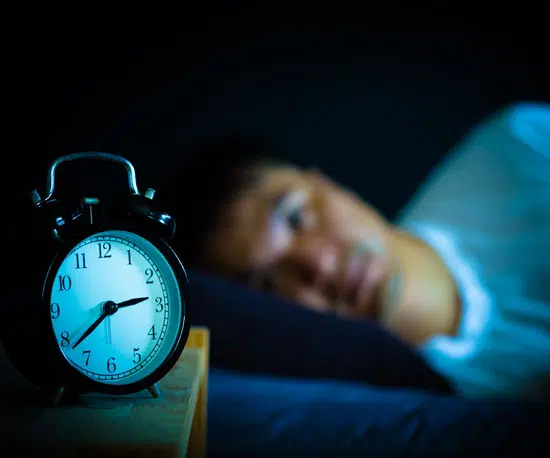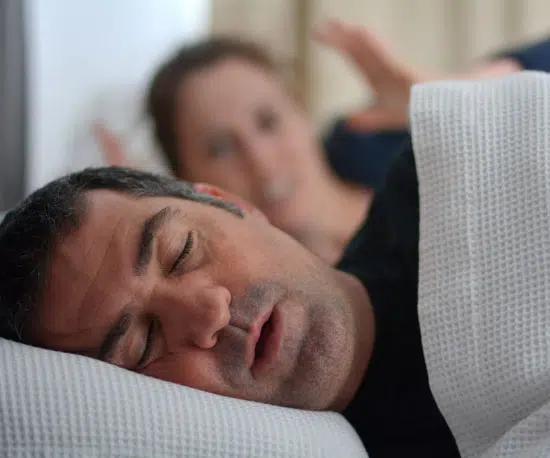Sleep Apnea In Bellevue, WA
Sleep apnea is a sleep disorder with potentially dangerous consequences wherein breathing stops and starts repeatedly. There are three primary types of sleep apnea: Obstructive sleep apnea (OSA), Central sleep apnea, and Complex sleep apnea syndrome.
In OSA, relaxation of throat muscles is the problem. In central sleep apnea, the brain is the problem; it doesn’t emit adequate signals required by muscles that regulate the basic function of breathing. Complex sleep apnea syndrome is a combination of the types mentioned above.
Sleep apnea troubles millions of people across the globe. While adults usually have this condition, sleep apnea in babies is also possible but uncommon. Read on to learn more about sleep apnea and its management.
Why Do We Snore & How Can Mouth Exercises Help Stop Snoring and Sleep Apnea?
The area behind our tongue narrows as we sleep, and the tissue around it may become loose and relaxed. When air is driven through the tissue as we breathe, it flutters and leads to snoring. Obstructive sleep apnea (OSA) occurs when the floppy muscles at the back of the throat relax to the extent that they shut the airway. This might result in inadequate ventilation while sleeping.
Snoring and obstructive sleep apnea are typically caused by:
- floppy airway tissues,
- inadequate tongue alignment
- mouth breathing while sleeping.
Mouth and throat exercises help strengthen the airway and tongue muscles while encouraging nasal breathing. These activities are known as myofunctional or oropharyngeal exercises. The oropharynx is the region at the rear of your mouth that comprises the tongue, throat sides, tonsils, adenoids, and soft palate. According to an NCBI study, regular oropharyngeal exercises can help prevent soft tissues from becoming too floppy and vibrating during sleep. Toning these muscles has been found in several trials to help decrease snoring and milder cases of OSA.
Who Can Benefit From Mouth and Throat Exercises for Snoring?
Myofunctional exercises are beneficial to those with OSA when administered in combination with a CPAP machine. Individual characteristics, such as the size and form of a person’s mouth, tongue, and throat, may influence how practical these exercises may be. If a patient’s snoring is caused by alcohol or tranquilizers that relax the muscles at the back of the throat, oropharyngeal exercises may be less helpful.
How Often Do You Need To Do Mouth Exercises for Snoring or Sleep Apnea?
Building muscle takes time, just like any other workout. To notice an improvement in snoring or sleep apnea, we recommend doing mouth exercises for at least 10 minutes every day for three months.
Why is Sleep Apnea treatment needed?
OSA treatment is necessary for better health and management of symptoms. Long-term, unmanaged OSA can cause complications ranging from daytime fatigue to high blood pressure, heart disease, type 2 diabetes, metabolic syndrome, liver problems, and complications with surgery or medications. This condition affects your partner as well and increases their risk of sleep deprivation.
There are several therapy options for sleep apnea to help you control your symptoms. Patients with sleep apnea can be treated with either oral device treatment or Continuous Positive Airway Pressure (CPAP) therapy. There is a slight difference between CPAP and COAT therapies depending on the severity of sleep apnea.


Treatment Options for Sleep Apnea
As mentioned above, milder sleep disorders usually don’t need a specific management approach. Healthcare professionals may recommend lifestyle changes such as weight loss and quitting smoking. If symptoms of OSA don’t improve with lifestyle changes or you have a moderate or severe condition, other management approaches are recommended. The most common treatment option is the use of CPAP (continuous positive airway pressure) – a machine that delivers air pressure through the mask while you’re sleeping.
Other therapies include supplemental oxygen, adaptive servo-ventilation, other airway pressure devices, and an oral device. Of course, it is also necessary to treat the underlying medical condition. Oral devices and new OSA machines are beneficial for patients who want to treat OSA without CPAP.
Contact your healthcare provider about the best OSA machine. Dental sleep medicine can simplify the management of OSA.
If these therapies don’t work, the healthcare professional may recommend surgery. The surgical procedures include tissue removal/shrinkage, nerve stimulation, tracheostomy (creating a new air passageway), and jaw repositioning.
How does treatment work for Sleep Apnea?
The first step toward OSA treatment is recognizing the symptoms and search the OSA test near you. Oral and maxillofacial surgeons usually treat these sleep disorders, but dentists also aid OSA management with dental sleep medicine. Dentists can also perform tooth replacement treatment.
Skull X-ray analysis allows the surgeon to see the level of the obstruction. To fully confirm the level of the decreased oxygenation, the nocturnal polysomnography may be recommended to monitor the activity of the heart, lungs, and brain while you sleep, i.e., you will do an OSA test at home.
The management of OSA depends on the severity of the condition and a patient’s health status. Milder cases often don’t require specific management other than lifestyle modifications, but more pronounced OSA calls for a well-structured action plan.
With the help of a sleep apnea dentist specialist In Bellevue, you have a chance to manage your condition with oral appliance therapy that helps maintain the open and unobstructed airway.
Call today to schedule a consultation! (425) 998-8109
Call today to schedule a consultation!
(425) 998-8109
Frequently Asked Questions
What causes OSA?
The exact cause depends on the type of disorder. OSA occurs when muscles at the back of the throat relax, thus narrowing the airway or closing it as you breathe in. As a result, you can’t get enough air, and oxygen levels drop.
While everyone’s at risk, some people are more likely to develop OSA than others. Common risk factors include overweight/obesity, thicker neck, narrowed airway, nasal congestion, family history, being a male, alcohol use, smoking, and medical conditions such as congestive heart failure, type 2 diabetes, and hypertension.
What are the symptoms of OSA?
Sleep apnea symptoms include loud snoring, stopping breathing during sleep, gasping for the air during sleep, waking up with a dry mouth, irritability, and excessive daytime sleepiness. Some people may also notice morning headaches or find it difficult to pay attention during the day.
What adverse effects can OSA cause?
The condition harms your quality of life. Besides daytime fatigue, you may notice blood pressure, liver, and chronic diseases such as type 2 diabetes.
Reviewed By

Dr. Uparika Sharma
Doctor of Dental Surgery (D.D.S.)
Dr. Uparika Sharma brings over five years of hands-on experience in general and cosmetic dentistry. She leads patient care at Bellevue Azalea Dentistry, where she is known for her gentle approach and personalized treatment plans. Dr. Sharma earned her Doctor of Dental Surgery (D.D.S.) degree from the University of Washington and is an active member of the American Dental Association, reflecting her commitment to continued education and high standards of care.
